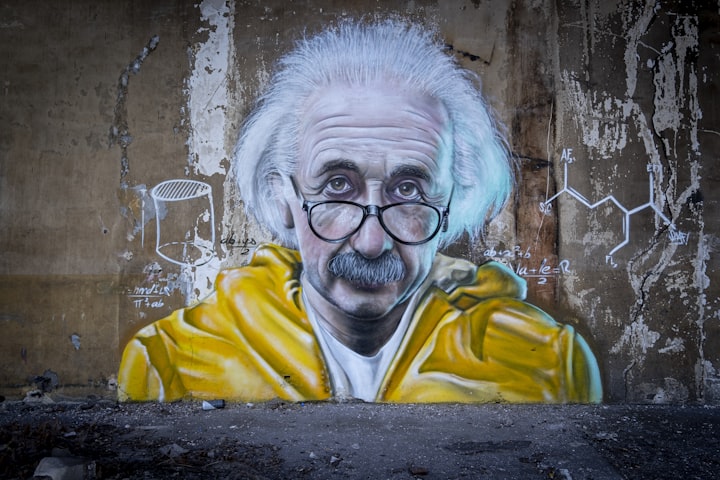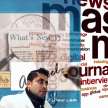The Hidden Side of Albert Einstein
Unravel the mysteries surrounding Albert Einstein with these 10 fascinating and little-known insights into his life.

The Hidden Side of Albert Einstein: 10 Secret Facts
Welcome to a very interesting topic about the hidden side of one of the greatest minds in history, Albert Einstein.
In this article, we will go deep into the life and accomplishments of this legendary physicist, unearthing lesser-known truths that have been cloaked in mystery for years. Join us as we explore the intriguing aspects of Einstein's life that have the ability to astonish and enchant, and set the record straight on some of the prevalent myths surrounding this great person.
1. Einstein's Early Life and Struggles
On March 14, 1879, Albert Einstein was born in Ulm, a city in the German Empire's Kingdom of Württemberg. Contrary to common assumption, Einstein's early life was not a smooth ride.
He had hurdles, including speaking difficulties, which led others to suspect he might have a learning handicap. However, these problems did not discourage young Albert from demonstrating a great interest in the world around him, establishing the groundwork for his future brilliance.
2. Academic Journey and Einstein's Patent Office Years
After completing his official schooling, Einstein struggled to find a teaching position, which eventually led him to work at the Swiss Patent Office. This phase proved to be essential for his scientific path as he had adequate opportunity to examine his thoughts and dive into theoretical physics during his leisure hours.
This lesser-known part of Einstein's life played a significant influence in shaping his innovative theories.
3. Annus Mirabilis: The Miracle Year
In 1905, Einstein enjoyed what is commonly known as the "Annus Mirabilis" or the "Miracle Year." During this incredible time, Einstein authored four pioneering articles that changed the branches of physics and gave him the status of a genius.
Among these articles was the theory of special relativity, which proposed the famous equation E=mc², altering our understanding of energy and mass.
4. Einstein's Nobel Prize and the Photoelectric Effect
Despite his breakthrough achievement, it might surprise many to discover that Einstein was not given the Nobel Prize for his theory of relativity. Instead, he got it in 1921 for his explanation of the photoelectric effect, an important finding that contributed considerably to the development of quantum mechanics.
5. Einstein's Political Activism
Beyond his scientific achievements, Einstein was a fervent champion for civil rights and pacifism. He freely spoke out against injustice and used his power to promote peace through some of history's most violent eras.
His efforts to resist bigotry and assist the civil rights struggle deserve respect and admiration.
6. The Unified Field Theory
Einstein spent the last years of his life exploring a grand unifying theory that might integrate the forces of nature into a single framework. While he never reached this goal, his pursuit of the unified field theory continues to inspire and impact modern physics research to this day.
7. Einstein's Brain and Legacy
After his death in 1955, Einstein's brain was kept for scientific research. Researchers sought to identify unique traits that would explain his remarkable intellect.
While certain research revealed variations in some brain regions, the real effect of these discoveries remains a subject of disagreement among academics.
8. Einstein's Love for Music
Few are aware that Einstein had a profound affinity for music, particularly playing the violin. He found peace and inspiration in music, often turning to it during moments of stress or creative blocks in his scientific work.
This lesser-known portion of his life adds a lovely depth to his already varied personality.
9. Einstein's Thoughts on the Nature of Reality
Einstein's views on reality and determinism were complex. He famously declared, "God does not play dice with the universe," reflecting his belief in a deterministic existence.
Yet, he also dealt with the underlying rules of quantum mechanics, which introduced a degree of unpredictability into the tiny realm.
10. Einstein's Last Words
On April 18, 1955, Albert Einstein passed away, leaving behind an immense legacy. His last words, said in German to a nurse "Who didn't grasp the language, remain a mystery to this day". The solitude of this moment represented the cryptic nature of this exceptional individual, leaving us with a sense of awe and amazement.
Einstein's IQ
Albert Einstein's name is typically connected with genius, and his astonishing achievements have led to the prevalent idea that he possessed an unusually high IQ.
However, when we go deeper into the history and knowledge of IQ testing, we come to learn that assessing intelligence is not as basic as it may seem. In this blog segment, we will analyze the misconception surrounding Einstein's IQ and offer insight on the intricacy of judging actual brilliance.
The IQ Test - Limitations and Controversies
IQ, or Intelligence Quotient, is a measure used to assess cognitive abilities and compare them to the general population. While IQ tests can provide valuable insights into certain cognitive skills, they have faced criticism for being culturally biased and unable to capture the full spectrum of human intelligence.
Moreover, IQ scores are not static; they can fluctuate based on various factors, such as education, environment, and even emotional state.
Einstein's IQ - Lack of Concrete Evidence
Despite the popular belief in Einstein's high IQ, there is no concrete evidence to support this claim. Einstein never took a standardized IQ test during his lifetime, and any retrospective assessments are purely speculative.
Additionally, as IQ tests during Einstein's time were different from modern ones, it becomes even more challenging to draw accurate comparisons.
Multiple Intelligences - A Holistic View
Modern psychology recognizes the concept of "multiple intelligences" proposed by Howard Gardner.
According to this theory, intelligence is not a singular entity but rather a combination of various abilities, including linguistic, logical-mathematical, musical, spatial, bodily-kinesthetic, interpersonal, intrapersonal, and naturalistic intelligence.
Einstein's exceptional cognitive abilities likely excelled in certain areas, but reducing his genius to a single IQ number oversimplifies the complexity of intelligence.
Albert Einstein's Inventions and Contributions
Beyond his groundbreaking theories in physics, Albert Einstein made significant contributions to various fields during his lifetime.
Let us explore some of the inventions and innovations attributed to Einstein, showcasing his versatility and impact on the world beyond theoretical physics.
Einstein's Refrigerator
In collaboration with his former student, Leo Szilard, Einstein patented a unique and efficient refrigerator design in 1926. The refrigerator used no electricity and instead relied on changes in pressure to cool its contents.
Although it never gained widespread commercial success during Einstein's time, modern iterations of this eco-friendly fridge continue to inspire sustainable cooling technologies today.
Einstein's Photovoltaic Cell
In 1905, the same year he published his theory of relativity, Einstein also investigated the photoelectric effect, which laid the groundwork for the development of photovoltaic cells.
While Einstein didn't invent solar cells, his theoretical work on the photoelectric effect contributed significantly to the understanding of the process that underpins modern solar energy technology.
Einstein's Compass
Early in his life, Einstein displayed a remarkable aptitude for mathematics and analytical thinking. As a teenager, he built a compass using spare parts, a testament to his innate curiosity and ingenuity.
This early venture into invention foreshadowed his future contributions to science and engineering.
The Final Words
Albert Einstein's life was more than a tale of scientific greatness. His challenges, interests, and contributions to numerous parts of society make him a compelling figure worth investigating beyond the surface.
I hope that this article has thrown light on some of the lesser-known parts of Einstein's life and provided a more comprehensive picture of the man behind the famed equations.
If you're looking for science based Expert advice on Fitness, Diet , Healthy eating habits, effective Workout routines to stay fit, or the latest trends in the wellness industry,
Todays Article has got you covered. Through its engaging articles, practical tips, and evidence-based recommendations, the website empowers readers to make informed choices and adopt a balanced lifestyle. It's a one-stop destination for anyone passionate about optimizing their health and achieving their fitness goals.
Visit Todays Article today and unlock a world of knowledge to embark on your journey towards a healthier, happier you.
About the Creator
Bishnu Banerjee
Hey its Bishnu Banerjee, I am a highly accomplished Blogger and Entrepreneur. I made a significant impact in the world of blogging over the past five years. I invite you to check out widely popular website 'Todays Article'. Thanks a lot.






Comments
There are no comments for this story
Be the first to respond and start the conversation.